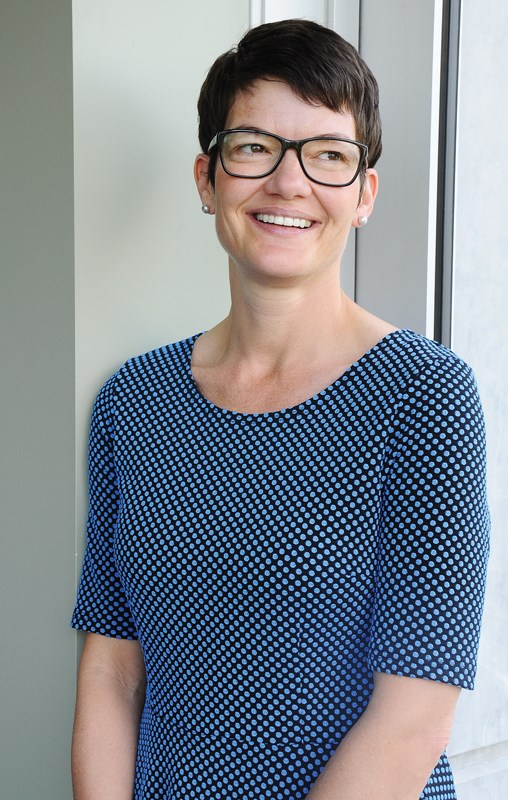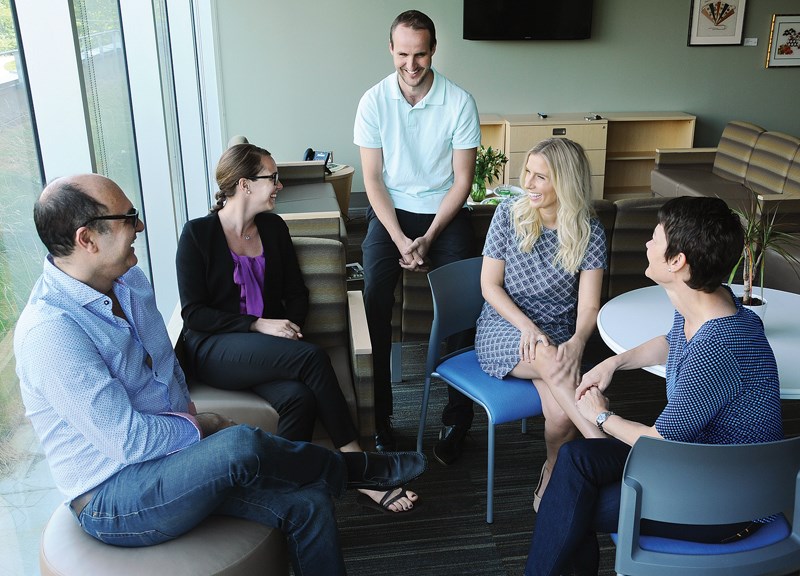It’s a long way from Iran to Bella Bella.
But that’s where the medical career of family doctor Payman Nabai has taken him.
Nabai, one of the first eight doctors to graduate from a new family doctors’ training program based on the North Shore, will head to Bella Bella on B.C.’s central coast this fall, to become one of only a handful of doctors based in the community.
Jessica Palmer, another of the graduates, who grew up on the North Shore, will start her practice filling in for a maternity leave in North Vancouver.
Both will be adding to the supply of desperately sought-after family doctors in the province. And they’ll be putting into practice a wide variety of skills, honed during four-month residencies in more rural coastal communities.
While programs to train family doctors aren’t new, the one based at the Lions Gate Hospital’s HOpe Centre is only two years old.
It’s part of an increased push to train more family doctors across the province.
Traditionally, there’s been a cultural bias against family practice in medical schools, said Dr. Dean Brown, a family doctor and site director for UBC’s coastal family practice residency program based at Lions Gate.
There’s the perception that “if you’re really smart you’ll go into a specialty,” said Brown.
But “that’s not true,” he said. Family practice is “just as challenging as any work out there.”
One of the unique parts of the North Shore-based program is that doctors in it go to smaller, rural communities in the Vancouver Coastal Health region to train for four months out of the two-year residency – longer than in many other programs. Part of the reason is that family doctors in more rural communities tend to have a wider variety of hands-on work than doctors in urban settings – where it’s much easier to refer to a specialist.
“Family doctors in rural settings basically do everything,” said Nabai – from emergency room work to caring for the elderly, and dealing with everything from sports injuries to addictions.
Nabai, who spent his four-month rural residency in Squamish, said he also worked with a family doctor who was experienced in anesthesiology. In many smaller communities there isn’t a dedicated anesthesiologist so family doctors also learn to perform that role.
Nabai is one of four doctors from the recent eight graduates who originally trained as a doctor elsewhere in the world and went through the UBC program in order to be able to practice in B.C.
“It was hard to get in,” he said, adding he passed the required entrance exams and applied for a coveted spot several years in a row before being accepted in 2016.
Nabai said he decided to go into family practice because family doctors see a wide variety of problems. “It’s more like detective work,” he said, compared to specialists who “see the same thing every day.”
As part of being accepted into the training program, international doctors must agree to spend two years after they graduate working in rural communities.
Going to Bella Bella will allow him to see some of the natural beauty of the province first-hand, said Nabai. “It’s going to be exciting,” he said.
Palmer’s own interest in medicine used to be in research and genetics – until one of her own three children required a heart transplant as a baby, giving her a new appreciation for the role of the family doctor.

Her family appreciated having someone who could advocate for them, she said. She also liked the idea of having a deeper knowledge of someone’s family background and the factors that go into their health conditions.
Like Nabai, Palmer spent her four months of rural training in Squamish.
Although not that far from the city, in a more rural setting, “you don’t have 24- hour access to technology and labs,” she said. “You have to go back to the basics of medicine.”
Seeing patients in different settings in a small town, from the clinic to the emergency room, helped her to get to know them, she said.
Both Nabai and Palmer said it’s frustrating that people have such a hard time finding a family doctor.
Now that she’s graduated, Palmer said she hopes, “I’ll be able to help with that a little bit.”



